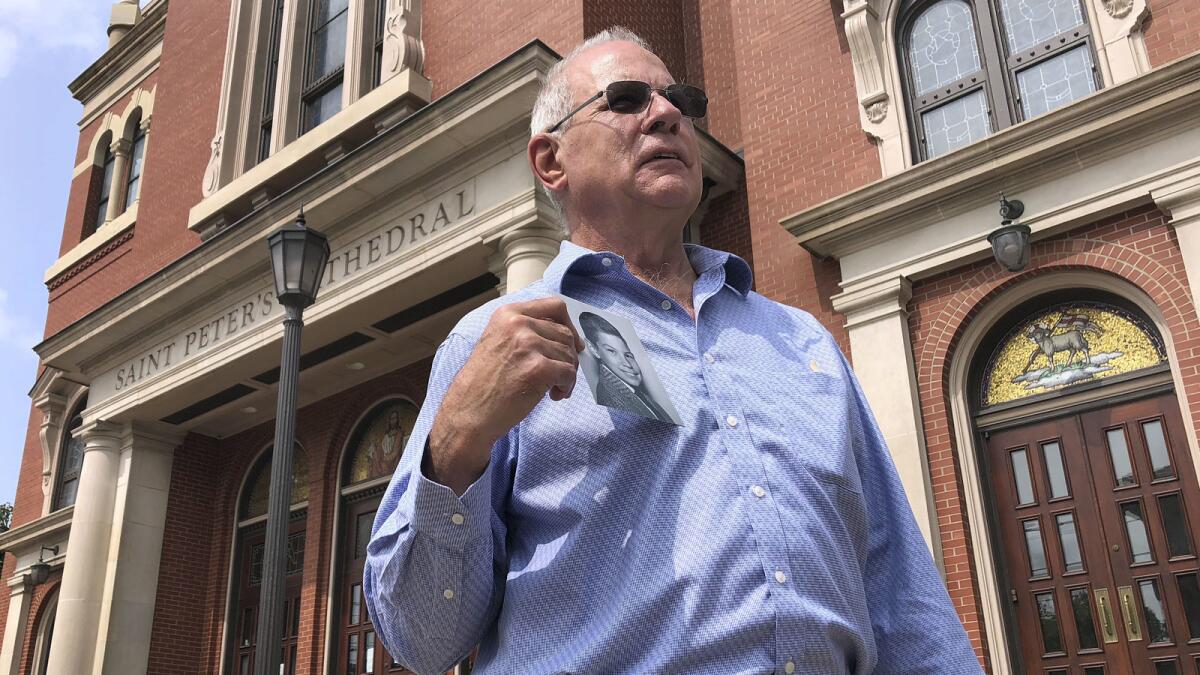Bill would extend statute of limitations for childhood sex abuse victims to file suit

- Share via
A bill sitting on Gov. Jerry Brown’s desk could give survivors of childhood sexual assault much more time — in some cases, decades — to sue those who might have stopped their abuse.
The proposed law, written by Assemblywoman Lorena Gonzalez Fletcher (D-San Diego), would allow victims to file abuse claims until they are 40 years old. It would also permit those who have repressed memories of abuse to sue within five years of unearthing the cause of their trauma.
If enacted, the bill would be a symbol of progress for abuse survivors such as Tim Lennon, president of the Survivors Network of those Abused by Priests. Lennon was raped by a Roman Catholic priest when he 12 years old but buried the memory until he was 43.
“If a survivor does make the brave choice to come forward, they only have a restricted amount of time to seek justice,” Lennon said of the current statute of limitations.
Victims in California can sue a third party that may have ignored or covered up abuse — such as a private school or a church — until they are 26 years old or three years after coming to terms with repressed memories, whichever occurs later.
Beyond memory repression, there are many reasons people do not come forward for years after being abused, victims advocates say, including shame and discouragement from authority figures. The proposed legislation gives survivors more time to process their abuse and vocalize their trauma — which can take decades, Lennon said.
The bill would also expand a victim’s ability to sue public institutions, including schools, for damages. Current law requires such a claim to be filed within six months of the alleged incident if it occurred before 2009. This law would lift that requirement entirely.
The California Catholic Conference, which represents the California Catholic Conference of Bishops, said it opposes the bill. It places an unfair burden on the accused, who, decades after the alleged abuse, may be unable to furnish witnesses or records to defend themselves, said Steve Pehanich, spokesman for the group.
“You want to be able to give people the proper amount to bring these cases,” Pehanich said. “How much time that is, exactly, is a very difficult question to answer.”
Brown has until Saturday to sign or reject the bill.
In 2013, Brown vetoed a bill that would have extended the statute of limitations for some childhood victims of sexual abuse.
“There comes a time when an individual or organization should be secure in the reasonable expectation that past acts are indeed in the past,” Brown wrote in his three-page veto message, “and not subject to further lawsuits.”
Times staff writer Maloy Moore contributed to this report.
[email protected] | Twitter: @LauraMNewberry
More to Read
Sign up for Essential California
The most important California stories and recommendations in your inbox every morning.
You may occasionally receive promotional content from the Los Angeles Times.











